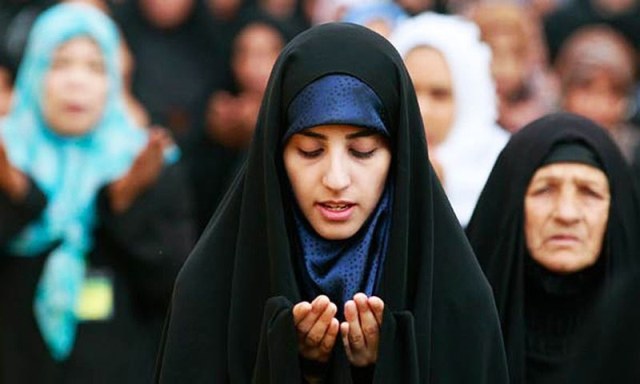Who is Amrullah Saleh - Afghanistan’s ‘Caretaker President’
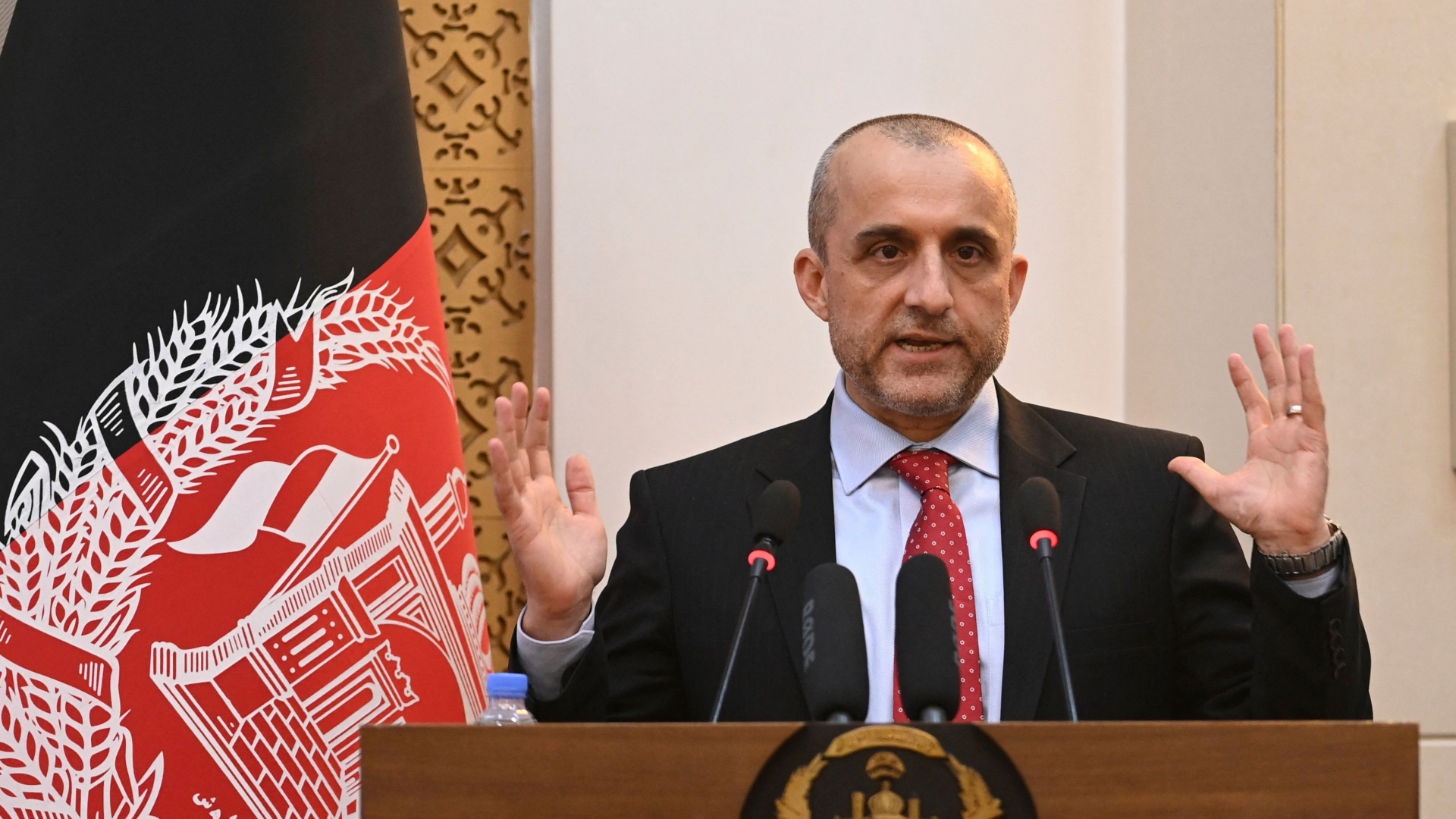 |
| Photo Deccan Herald |
Who is Amrullah Saleh?
Amrullah Saleh is an Afghan politician who has worked under Ahmad Shah Massoud, as well as the Karzai government.
Saleh, 50, comes from the Tajik-dominated Panjshir Valley 150 km north of Kabul. He was a member of the anti-Taliban Northern Alliance during the civil war that followed the 1992 ouster of Mohammed Najibullah, Afghanistan’s USSR-backed ruler since 1987.
Back then, India, assessing that the Taliban had been propped by Pakistan’s army and the ISI, was among the countries that refused to recognise the regime of 1996-2001.
“Throughout the 1990s, India gave military and financial assistance to the Northern Alliance fighting the Pakistan-sponsored Taliban regime in Afghanistan,” former Foreign Secretary Shyam Saran wrote in How India Sees the World (2017).
| Amrullah Saleh was born in 1971, in the Panjshir province of Afghanistan, making him ethnically Tajik. Early in his youth, Saleh joined the United Front, headed by Ahmad Shah Massoud. He moved up in ranks, until Massoud himself appointed Saleh to command the international liaison office of the United Front in the Embassy of Afghanistan in Dushanbe, Tajikistan. |
Amrullah Saleh Former Functions
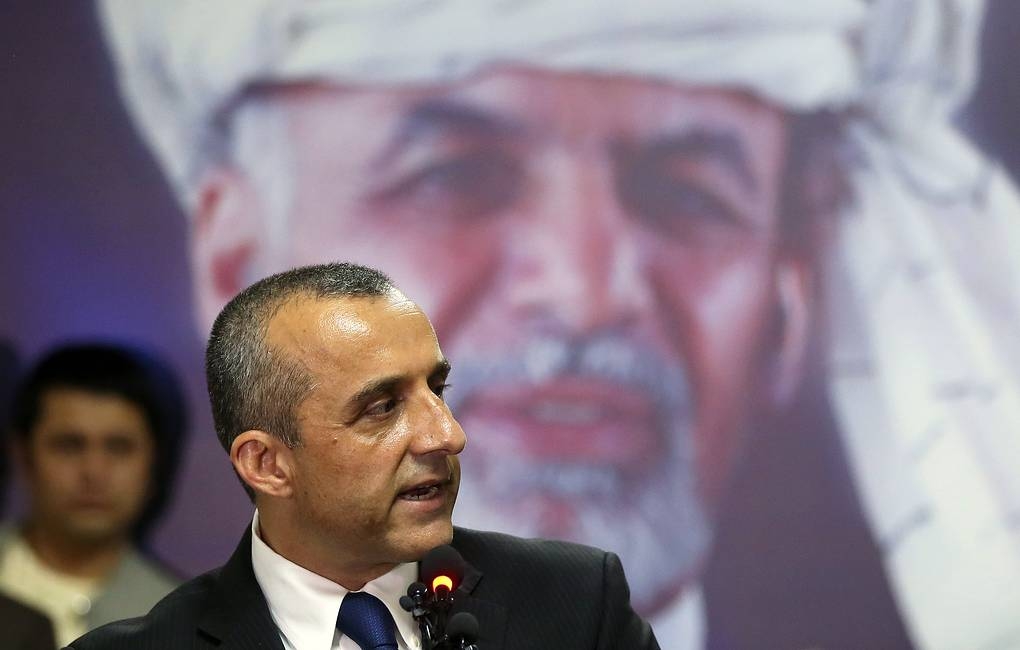 |
| Photo Hundustan Times |
Head of foreign relations at the NDS (2002),
Senior official at the NDS (2003),
Head National Directorate of Security NDS (2004 – 2010/06/06 resigned),
Minister of Interior (2018/12/24) acting stepped down (2019/01/19)
First Vice President under Ashraf Ghani Ahmadzai (2020/02/19)
Amrullah Saleh Biography Timeline
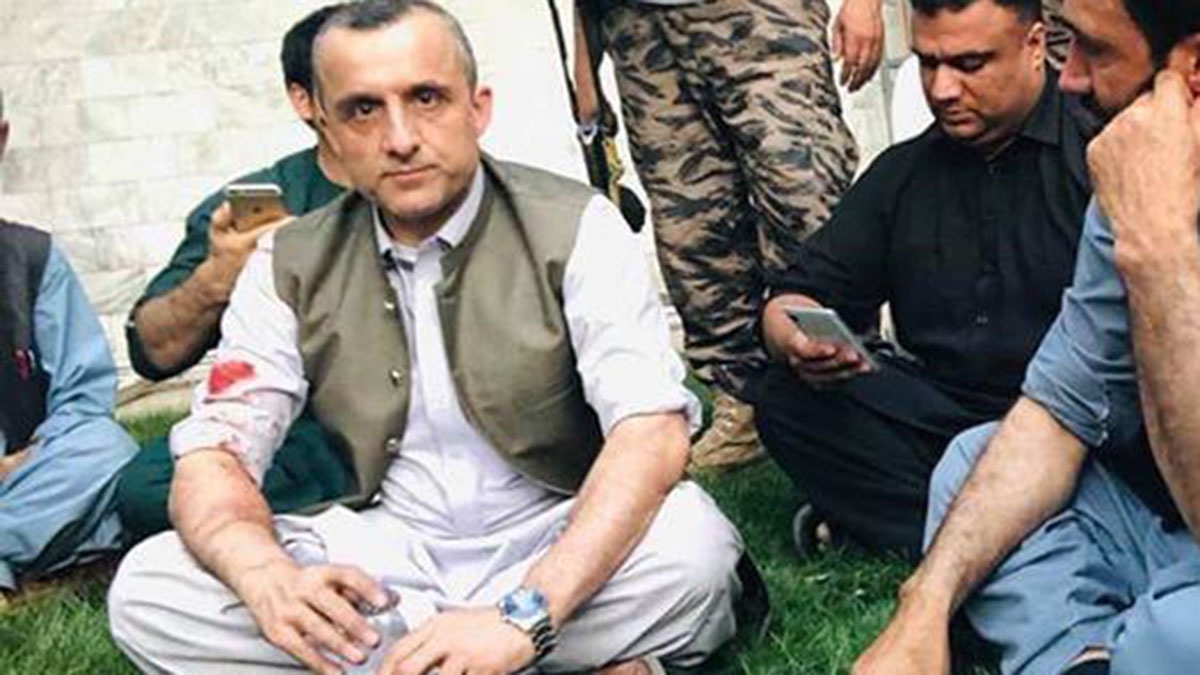 |
| Photo The Print |
1972
Saleh was born in October 1972 in Panjshir, Afghanistan. He belongs to the Tajik ethnic group.
1990
In 1990, in order to avoid being conscripted into the Soviet-backed Afghan army, Saleh joined the opposition mujahideen forces. He received military training in neighboring Pakistan and fought under mujahideen commander Ahmad Shah Massoud.
1997
In the late 1990s, Saleh was a member of the Northern Alliance (also known as the United Front) and was fighting against the Taliban expansion. In 1997, Saleh was appointed by Massoud to lead the United Front's international liaison office at the Embassy of Afghanistan in Dushanbe, Tajikistan, where he served as a coordinator for non-governmental (humanitarian) organizations and as a liaison partner for foreign intelligence agencies.
2001
According to Ambassador Hank Crumpton from the CIA, who led the Operation Enduring Freedom in Afghanistan in 2001, Saleh possessed "good technical skills and emerging leadership traits". Ambassador Crumpton also writes in his recent book that he found Saleh to be "young, brilliant, honest, and devoted to a free Afghanistan".
2004
After the formation of the Islamic Republic of Afghanistan in December 2004, Saleh was appointed as head of the National Directorate of Security (NDS) by President Hamid Karzai. Saleh initiated structural reforms and helped rebuild the Afghan intelligence service. Saleh and former interior minister Hanif Atmar were viewed by the international community as two of the most competent cabinet members in the Afghan government. A western security expert told The Guardian that both men had a reputation for "clearing corruption within" their organs.
2005
In 2005, Saleh engaged several NDS agents infiltrating the Pakistani tribal areas to search for bin Laden and other al-Qaeda and Taliban leaders. Several al-Qaeda members could be identified, but it was determined that Bin Laden was not in the area. In 2006, Saleh was presented with evidence that bin Laden was living in a major settled area of Pakistan just 20 miles from the town of Abbottabad, Pakistan. He shared the intelligence with former Pakistani President Pervez Musharraf who angrily brushed off the claim, taking no action.
As early as 2004, agents working for Afghan intelligence determined that Bin Laden was living in a major settled area in Pakistan proper, rather than the semi-autonomous tribal areas on the Afghan-Pakistan border, Amrullah Saleh told The Guardian. Leading Saleh and Afghan intelligence to that conclusion were "thousands of interrogation reports" and the assumption that Bin Laden "a millionaire with multiple wives and no background of toughness would not be living in a tent". "I was pretty sure he was in the settled areas of Pakistan because in 2005 it was still very easy to infiltrate the tribal areas, and we had massive numbers of informants there. They could find any Arab but not Bin Laden."
2007
In 2007, the Afghans specifically identified two Al-Qaeda safe houses in Manshera, a town just miles from Abbottabad, leading them to believe that Bin Laden was possibly hiding there. But Amrullah Saleh says that Pakistani President Pervez Musharraf angrily smashed his fist on a table when Saleh presented the information to him during a meeting in which Afghan President Hamid Karzai also took part. According to Saleh, "He said, 'Am I the president of the Republic of Banana?' Then he turned to President Karzai and said, 'Why have you brought this Panjshiri guy to teach me intelligence?'"
2009
Following the 2009 Afghan presidential election, Afghan President Karzai's views about the security issues confronting Afghanistan and how best to deal with them reportedly changed. This affected the working relationship between the President of Afghanistan and some of his cabinet ministers including his intelligence chief. Saleh said, "He [Karzai] thought democracy had hurt him as a person. His family had been attacked by the media unfairly, and the West was criticizing him unfairly. So after a presidential election, he was a changed man, and we could not have the same relationship as before the presidential election." Political analyst Ahmed Rashid in 2010 observed the same, "Karzai's new outlook is the most dramatic political shift he has undergone in the twenty-six years that I have known him." Both Saleh and Interior Minister Hanif Atmar subsequently had strong disagreements with Karzai on how to proceed against the Taliban, who Karzai began referring to as "brothers". At that point Saleh and Atmar were increasingly isolated in the Karzai administration.
Saleh has become a target of assassination a number of times. During a 60 Minutes interview in the United States in December 2009, Saleh stated:
2010
In early 2010, an Afghan man approached the NDS claiming to represent senior Taliban commander Mullah Akhtar Muhammad Mansour. Offering a letter allegedly written by Mansour, he said Mansour was interested to open a channel for negotiations. Saleh's people started testing the credentials of the supposed messenger, and judged them to be false, closing the case. The man then approached other Afghan government institutions. Saleh recounts, "When I learned ... that he was going through a different avenue, I warned the government that if it is this Aminullah, if he claims this, and if it is this guy, trust me, he is not representing anybody; it's a scam. ... Be careful. This is not Mansour. But there was a perception that Amrullah is against talks, so let's sideline him." The Afghan man, who lived in Pakistan where the Taliban's leadership council is based, subsequently held three meetings with NATO and Afghan officials. Having been flown from Pakistan to Kabul on a NATO airplane, the man met with President Karzai in the presidential palace. In late 2010, it turned out, that the supposed representative for Mansour was an impostor as Saleh had previously warned. The New York Times writes: "In an episode that could have been lifted from a spy novel, United States and Afghan officials now say the Afghan man was an impostor."
On June 6, 2010, Saleh resigned from the NDS while Atmar resigned from his position as interior minister after a militant attack against the national peace jirga, although nobody had been killed or wounded and the attackers had been arrested. A few days after the jirga, Karzai had summoned Atmar and Saleh to discuss the attack against the jirga. After the meeting both men officially resigned because of the failure to stop the attack on the jirga. CNSNews writes: "Saleh told reporters he had submitted his resignation as general director of National Security because he had lost Karzai's trust as a result of the attack. He said he and Atmar had briefed the president on the security preparations for the jirga, and the subsequent "success in ... capturing the facilitators", but Karzai had not been satisfied. He had therefore felt unable to continue in his post. He also said there were "tens" of reasons for leaving his position, but would not elaborate on others." The two men's resignation led to widespread concerns among Afghanistan experts. Concerns were voiced over the direction the country was moving in.
It was reported in 2010 that the Inter-Services Intelligence (ISI) and the Taliban "regarded Saleh as their fiercest opponent." He subsequently founded the Basej-e Milli (National mobilization) and Green Trend as a pro-democracy and anti-Taliban movement.
2011
A December 2011 analysis report by the Jamestown Foundation, however, came to the conclusion that "in spite of denials by the Pakistani military, evidence is emerging that elements within the Pakistani military harbored Osama bin Laden with the knowledge of former army chief General Pervez Musharraf and possibly current Chief of Army Staff (COAS) General Ashfaq Pervez Kayani. Former Pakistani Army Chief General Ziauddin Butt (aka General Ziauddin Khawaja) revealed at a conference on Pakistani–US relations in October 2011 that according to his knowledge the then former Director-General of Intelligence Bureau of Pakistan (2004–2008), Brigadier Ijaz Shah (retd.), had kept Osama bin Laden in an Intelligence Bureau safe house in Abbottabad." Pakistani General Ziauddin Butt said Bin Laden had been hidden in Abbottabad "with the full knowledge" of Pervez Musharraf. Butt later denied making any such statement.
In 2011, Saleh launched a peaceful campaign to warn that Hamid Karzai had lost conviction in the fight against the Taliban and was pursuing a compromise that could come at the cost of democracy, stability and human rights, especially women's rights. He criticized Karzai's policy, which he called a "fatal mistake and a recipe for civil war".
Amrullah Saleh consequently founded the Basej-e Milli (National Movement), also known as Afghanistan Green Trend, a political movement which has successfully established itself in Afghanistan. In May 2011, a mass of followers took part in an anti-Taliban demonstration in the capital Kabul.
In December 2011, Saleh also criticized the corruption of the Karzai government. He warned that if the Afghan government did not commit itself to necessary reforms and to battling corruption, the year 2014 - when international troops plan on having finalized their exit strategy - would be "a year of challenges rather than opportunities". Saleh especially emphasized the need for fundamental reforms in Afghanistan's Independent Electoral Commission.
2012
In an article that he wrote for the Wall Street Journal in February 2012, he mentioned, "Talks and a potential ceasefire may provide the US and its NATO allies their justification for a speedy withdrawal, but it won't change the fundamentals of the problem in Afghanistan. Striking a deal with the Taliban without disarming them will shatter the hope of a strong, viable, pluralistic Afghan state."
In his commentaries, Amrullah Saleh also discusses the negative influence of parochial politics and lack of incentives on the development of the Afghan National Security Forces. In an article for Al Jazeera in April 2012, he wrote, "Idealism and belief in values are crucial to strengthening the ranks. But when the security forces witness the decay of values at the leadership level, the incentive for sacrifice plummets. The effectiveness of the force declines. And in such situations ethnic and regional divides, personal connections, and mistrust creep in."
He warns that ethnic politics and internal fragmentation are serious challenges for Afghanistan. In an article for Al Jazeera in June 2012, he wrote, "Pan-Afghan parties don’t exist. Afghans of all ethnic groups have stood together for a common cause but they have failed to share a common platform."
2013
In a recent article for Foreign Policy, titled, "What went wrong with Afghanistan?" published in March 2013, Amrullah Saleh mentioned that the key reason for the current problematic situation in Afghanistan was the West's (US and NATO's) mistaken belief that Pakistan would change its policies in Afghanistan.
On May 3, 2013, the Afghan Green Trend - the grassroots movement led by Amrullah Saleh - organized a large athletic demonstration in support of the Afghan National Security Forces (ANSF). It also aimed at denouncing corruption, calling for a clean city and a clean municipality. The demonstration passed through the Afghan parliament building. The demonstrators chanted against the parliament's alleged corruption and denounced MPs who take bribes.
On June 9, 2013, in the 10th annual US-Islamic forum organized in Doha by the Brookings institution in partnership with the state of Qatar, Amrullah Saleh spoke in a plenary session titled "Transitions in Afghanistan and Pakistan". Amrullah Saleh warned, "While America's war on terror may be winding down, the war between democratic forces and extremist groups in Afghanistan has not come to an end due to the widespread presence of terrorist sanctuaries, ongoing hostilities between Afghanistan and Pakistan, and the rising momentum in the Taliban's insurgency."
2018
President Ashraf Ghani appointed Saleh to become the new interior minister on December 23, 2018, in a major shake up in the government's security positions. At the same time, Asadullah Khalid was appointed the minister for defence. Media have claimed that Saleh and Khalid's vocal anti-Taliban critics could help curb the Taliban both military and in their ongoing peace talks.
2019
On January 19, 2019, Saleh resigned as the Interior Minister to join Ashraf Ghani's election team.
On July 28, 2019, three militants entered Saleh's office in Kabul after a suicide bomber blew himself up. At least 20 people were killed and 50 injured in the suicide bombing and gun battle at his office. Saleh was not injured in the attack. Saleh lost many colleagues and 2 nephews in the attack. The attack on Saleh was condemned by the international community, including the European Union.
2020
On September 9, 2020, Saleh was wounded by a roadside bomb attack in Kabul, in which ten people were killed. Fifteen civilians were wounded, including some of his bodyguards. The Taliban denied responsibility. Saleh posted a video on Facebook after the explosion with bandages on his left hand and burns to his face. Saleh said he was traveling to his office with his son when the attack took place. There was no claim of responsibility for the bombing.
Afghanistan’s ‘caretaker president’
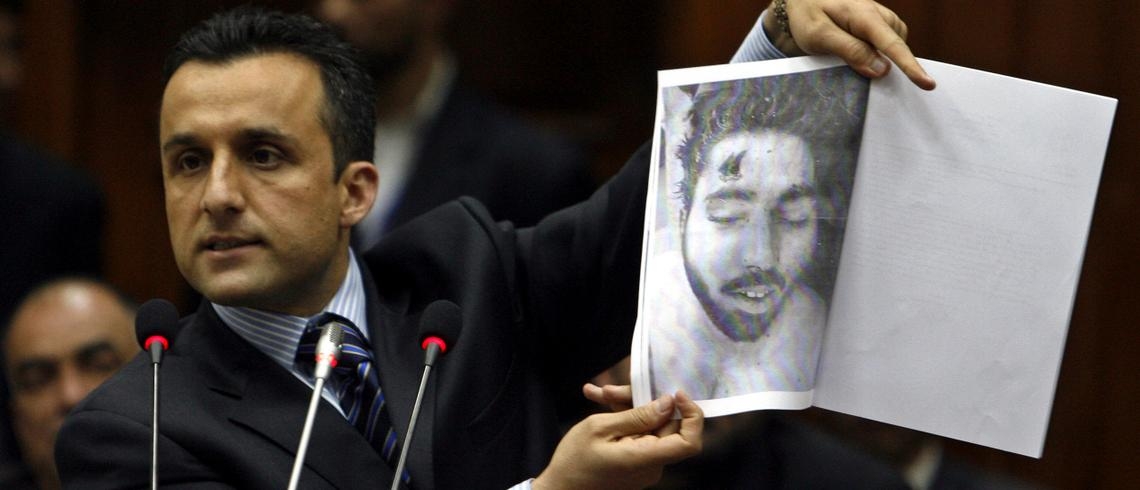 |
| Photo TRT |
Amrullah Saleh has said that since Afghanistan’s president, Ashraf Ghani, has fled the country, he is now the country’s ‘legitimate’ caretaker president.
Amrullah Saleh, Afghanistan’s vice president since February last year, declared this week that since President Ashraf Ghani has fled the country and his whereabouts are unknown, he is now the country’s ‘legitimate’ caretaker president.
Citing the Afghan constitution, Saleh made the announcement on Twitter, in which he said he was “reaching out to all leaders to secure their support & consensus.”
A follower of the slain Northern Alliance leader Ahmad Shah Massoud, Saleh has said he will “never be under one ceiling with Taliban.” The vice president has for years been critical of Pakistan, and in recent tweets has denounced “Pak backed oppression & brutal dictatorship”.
What has been his stand on Pakistan?
In his numerous interactions with The Indian Express over the years, Saleh has been forthright in his assessment of Pakistan’s support for the Taliban.
In a 2017 column written on India’s 70th Independence Day, Saleh took note of India standing behind Afghanistan’s Northern Alliance leadership even after the Taliban took over Kabul in 1996, adding, “With India’s political and meagre financial assistance, the anti Taliban resistance continued to hold on and thus prevent Afghanistan becoming a de-facto colony of Pakistan through creeping invasion.”
“That slice of history, from 1996-2001, known as the era of resistance in Afghanistan, evolved around the sacrifices of the Afghan people who defended their unique identity and rejected Pakistan-backed religious dogmatism and militancy,” Saleh wrote.
| In another column that same month, Saleh called then-US President Donald Trump’s strategy on Afghanistan “an acknowledgement of the fact that Pakistan has been playing a destructive and dubious role in Afghanistan by providing support and sanctuary to terrorists and agents of chaos”, and exhorted Washington to “follow up until Islamabad and its powerful army and intelligence stop nourishing the Taliban and other terrorist groups.” In an October 2017 column, Saleh described “the deceiving generals of the Pakistan Army and the terror-loving intelligence service, the ISI” as masters of what he described was Pakistan’s “Deep State”. In an interview with this paper in September 2019, Saleh said, “The key is for the Taliban to realise they can’t subdue a nation by guns and bombs provided by the Pakistani ISI and the army. The issue of Pakistan’s interference and backing of terrorism against the Afghan people is now so obvious that the Taliban can’t hide behind any mask. They have lost politically.” Read |Top Afghan leader: ‘Without Pakistan support, Taliban would fade away in six months…’ He also called the Taliban “worse than Khmer Rouge”, adding, “All their politburo are based in Pakistan and are not showing their faces. They can’t face the reality of new Afghanistan which is no longer buying the notion of armed struggle to solve political issues. Without Pakistan’s support, the Taliban would fade away in six months.” In the same interview, Saleh described Pakistan as an “insecure State which seeks security by sheer violence as it lacks other means to project its interest or vision.” |
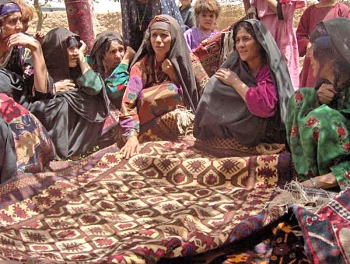 20 Amazing Facts About Afghanistan 20 Amazing Facts About Afghanistan Only in Afghanistan: It is a landlocked country, somewhere in the middle of Central and South Asia. It has a violent history. |
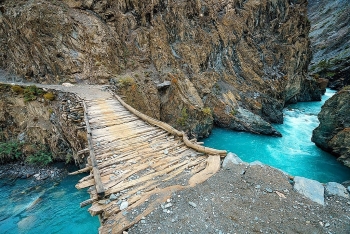 Top 10 Most Beautiful Places in Afghanistan Top 10 Most Beautiful Places in Afghanistan Taliban takes control of Kabul's presidential palace and Afghanistan. Would you like to visit the Top 10 Most Beautiful Places in this country? |
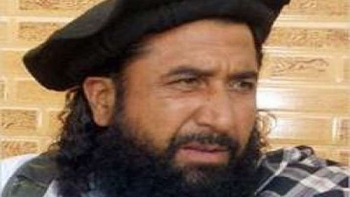 Who is Taliban Leader Abdul Ghani Baradar, likely to be next Afghanistan President Who is Taliban Leader Abdul Ghani Baradar, likely to be next Afghanistan President Taliban Leader Mullah Abdul Ghani Baradar, next Afghanistan President: Biography, Personal Profile. |
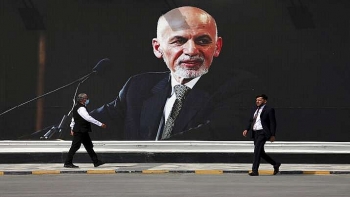 Where Afghanistan President Ghani Had Gone? Where Afghanistan President Ghani Had Gone? Taliban fighters entered Kabul and President Ashraf Ghani left Afghanistan. Where President Ghani had gone? |



